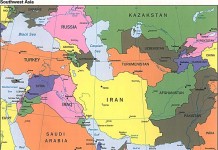 Context
Context
In an effort to decipher the emerging geopolitical realities, PoliTact occasionally partners with leading think-tanks to understand the multi faceted tangents of these trends. On November 16, PoliTact partnered with the Middle East Institute to examine the political, security, and economic interconnections between South Asia and the Middle East, and one of the subsets, Pakistan and GCC. While this interrelationship is not new, it is likely to become more pronounced in the future.
This discussion revolved around these key questions:
– Can Pakistan play a Mediating role in Yemen and other Middle East conflicts?
– Is Saudi Arabia joining China-Pakistan Economic Corridor (CPEC), and what are the implications?
– How is Pakistan managing the Saudi-Iran tensions and what is the future of this delicate balancing role?
– How is the GCC influence likely to play out in Pakistan’s policies?
– Do China and Pakistan have a common approach towards the Middle East?
– What is the role of India in this changing dynamics?
– What are the implications for the US policy in the region – and how are US policies impacting Pakistan’s posture?
– How are the policies of PTI led government in Pakistan shaping up towards GCC?
The panel discussion was moderated by Marvin Weinbaum, Director for Pakistan, Afghanistan Studies Center at the Middle East Institute.
The Panel included:
US ambassador to Yemen from 2010-2013.
He was also the ambassador to UAE from 2008-2011.
Director for Pakistan, Afghanistan at the National Security Council from 2010-2011 at the White House.
Consultant, World Bank, Political Analyst and Author.



